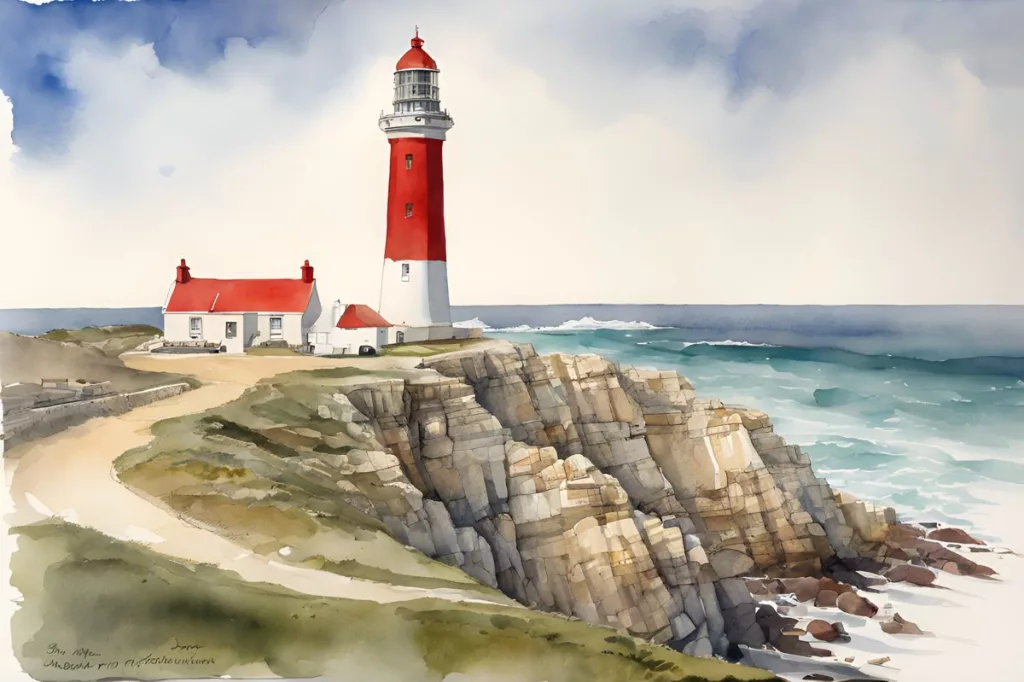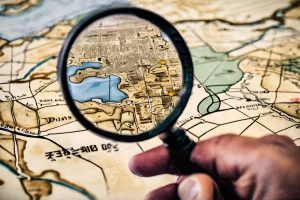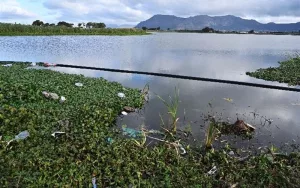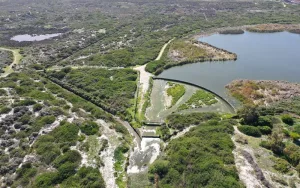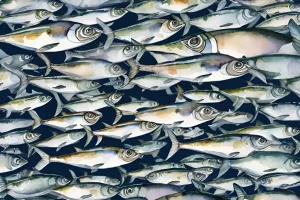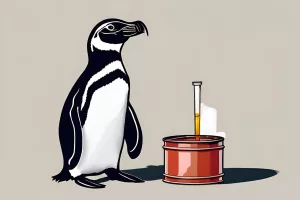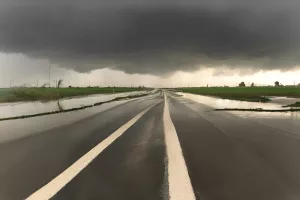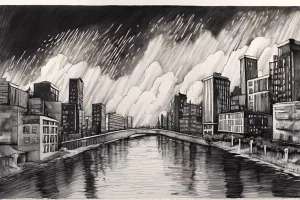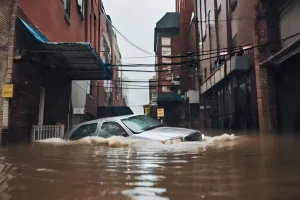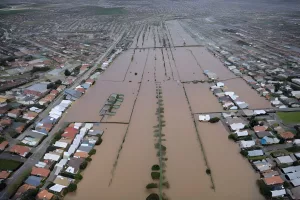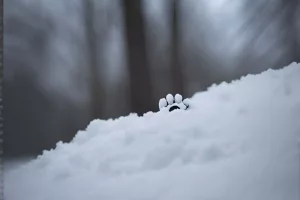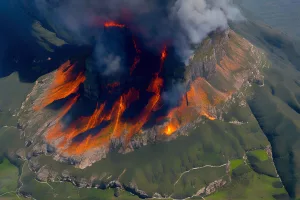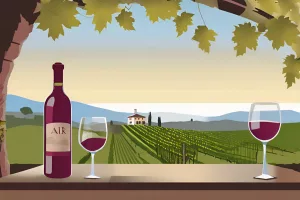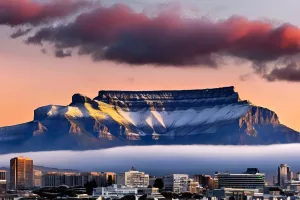L’Agulhas is a stunning coastal town where the Indian and Atlantic Oceans converge. It boasts abundant biodiversity, untouched wetlands, and intriguing bird species, making it a paradise for nature enthusiasts and art lovers. The town also has a thriving wine culture and is an emerging wine frontier in South Africa. Educational institutions and upcoming real estate developments make L’Agulhas an ideal place to live in, surrounded by picturesque landscapes and idyllic lifestyle options.
The ocean around Blouberg Beach in South Africa has undergone a strange transformation in color, triggering a range of theories and discussions. Some blame pollution, while others suggest natural phenomena, such as sediment mixing or freshwater interacting with saltwater. Despite the ongoing mystery, the situation highlights the need to understand the interplay between human actions and nature’s reactions to preserve our ecosystems. The power of shared curiosity and the role of social media in generating crucial dialogues have also been emphasized.
Spearheading Eco-Conservation: The Dynamic Role of Waste Interceptors in Aquatic Channels
Waste interceptors are costefficient tools that trap floating rubbish and debris in urban aquatic channels, ensuring a cleaner and healthier ecosystem. The city of Cape Town has successfully installed eight waste interceptors in rivers and water channels, showcasing its dedication to environmental conservation. The interceptors are designed using a simple mechanism and are adaptable to a range of waterways, making them an effective solution for litter control. The city’s continued commitment to maintaining and cleaning the interceptors highlights its resolve to improve water quality and safeguard longterm ecosystem health.
Cape Town is revamping the weirs at Zeekoevlei and Rondevlei as part of a larger plan to improve water quality. The proposed changes aim to promote the oxygenation of exposed sludge, elevate groundwater levels and restore natural equilibrium. The City is encouraging public participation and adhering to strict environmental guidelines to ensure compliance. The proposed redevelopment represents a shared vision of a healthier environment and a sustainable future.
The Sardine Run in South Africa is a breathtaking, raw display of marine life that has earned the title ‘Greatest Shoal on Earth.’ Billions of tiny silver bodies create a surge of life that lures predators such as sharks, dolphins, and orcas. However, overfishing and climate change are threatening the future of this annual spectacle, making its preservation crucial to the health and diversity of our marine ecosystems. The event’s magnitude is so colossal that it challenges human comprehension and belief, making it a wonder that deserves protection and preservation.
The African Penguin population has declined by more than half in the last decade, with only about 31,700 individuals left across their entire habitat. In 2000, an ecological disaster caused by the sinking of a fully loaded MV Treasure orecarrier led to over 40% of the global population of African Penguins being drenched in deadly heavy fuel oil. A paper published in Ostrich: Journal of African Ornithology suggests that the African Penguin meets the criteria to be classified as ‘critically endangered’, and the IUCN will make a final decision on its status on October 22.
Severe weather warnings have been issued for the Western Cape of South Africa, predicting heavy rain, strong winds, and snowfall in elevated areas, leading to road closures and cautionary measures. SAWS forecaster Lehlohonolo Thobela has disseminated the information to alert inhabitants to brace themselves for the looming weather scenarios. Despite the weatherrelated upheavals, the Western Cape’s resilient spirit stands firm, showcasing its adaptability and community resilience.
Cape Town faces heavy rainfall and flooding, but the city’s stormwater and sewage teams work tirelessly to unblock drains and maintain drainage systems. Public cooperation is also essential, with reporting of obstructed infrastructure and illegal dumping crucial in minimizing crises. Despite the challenges, Cape Town remains resilient thanks to the collective effort of its teams and residents.
An unforgiving storm has hit the city, causing flooding and roadblocks. MyCiTi bus routes are delayed and many areas are under water. Despite the chaos, the city’s unity and resilience shine through as residents show patience and understanding in weathering the storm and future challenges. The storm may have brought the city to a standstill, but its strength and adaptability are evident in the face of adversity.
Braving the Storm: An Examination of Cape Town’s Waterway Systems During Intense Rainfall
When heavy rainfall hits Cape Town, the city’s water channels can become overwhelmed, causing flash floods in certain areas. Lowlying regions around the Diep River and Kuils River are particularly at risk, and stormwaterrelated infrastructure can also be swamped. To combat these issues, it’s important for residents to report blocked infrastructure and dispose of waste responsibly, while the City takes proactive measures to clean infrastructure before winter. Safety is key during these times, with precautions including refraining from approaching water bodies and canals during heavy rain and maintaining gutters and drains free of debris.
Animal welfare society (AWS) has been flooded with distress calls following a recent spate of severe thunderstorms that have affected domestic and stray animals. The loud noise and intense light cause confusion among animals, leading many to bolt from their homes and become vulnerable to harsh weather conditions and oncoming vehicles. AWS staff have been witness to heartbreaking incidents of animal suffering, resulting in an increased workload and limited resources for the society. It is crucial for pet owners to take responsibility for their pet’s safety and comfort during harsh weather conditions.
Table Mountain National Park in South Africa uses a fuel reduction burn strategy called stack burning to prevent uncontrolled wildfires. These burns are a calculated precautionary measure that eliminates dry, flammable material that has piled up in the park. TMNP performs these burns every winter to minimize the risk of future destructive fires and to control invasive species. The park is committed to minimizing disruption to households during the process and has recommended precautionary measures for nearby residents. Through strategic prevention, TMNP is protecting South Africa’s rich biodiversity and setting an example of proactive environmental management.
Cape Town’s V&A Waterfront has launched a sustainability initiative called ‘Our Better Nature’. The initiative aims to promote mindful consumption and encourage sustainable consumer practices to reduce landfill reliance. Its centerpiece is an installation featuring a gigantic suspended shopping trolley adorned with vibrantly colored bags made from repurposed waste materials. The initiative calls on the community to join in transforming waste into captivating artwork and to make even small acts of kindness for the environment.
Beaumont Estate is a winery in South Africa’s Western Cape that practices sustainable living and has a strong connection to its terroir. The estate is dedicated to preserving the local ecosystem and offers visitors the chance to explore the stunning natural wonders of the Kogelberg Biosphere. Beyond winemaking, Beaumont is a living testament to sustainable living and an appreciation for nature, offering a unique and immersive experience. The estate embodies a lifestyle that reveres nature, celebrates its abundance, and preserves its splendor for future generations.
Kirstenbosch National Botanical Garden in Cape Town is a toprated horticultural destination and ranked 15th among the world’s best botanical gardens. The United Kingdom tops the list with a score of 79 out of 100, followed by Japan and the United States tying for second place. India and Malaysia also made it to the top five, while Australia and Costa Rica secured a place in the top 10. These countries offer a unique and unforgettable botanical adventure for plant lovers worldwide.
“The Icy Waltz of Winter: A Snowladen Table Mountain” is set to take place in the Western Cape of South Africa on July 7 and the following Thursday. Two powerful cold fronts are expected to sweep across the region, potentially turning Table Mountain and other areas into a winter wonderland. Snow lovers are eagerly anticipating this natural spectacle, which is expected to leave a lasting impression on our memories.

